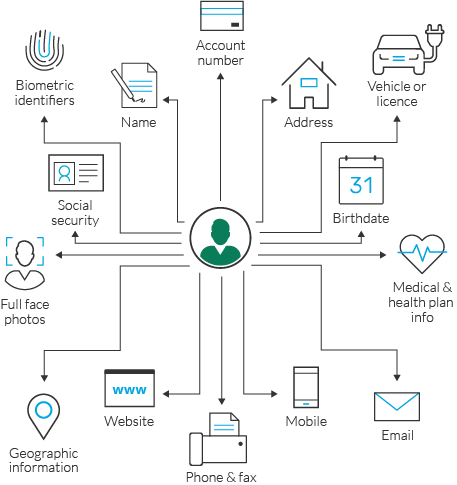Accessible Online Security

A comprehensive guide to Online Security. This is a Mozilla Open Leaders X Project.
View the Project on GitHub BrianObilo/onlinesecurity.github.io
Table of Contents
- Introduction
- Introduction to Cybersecurity
- Cybersecurity Threats
- Personal Security
- Password Security
- Secure Online Communications
4. Personal Security
Kenyans were ranked the most care-free users of the Internet globally. Only four in every 10 internet users in Kenya are concerned about their privacy online, according to a report by the United Nations Conference on Trade and Development (UNCTAD) released on September 2019. Read the official report by UNCTAD here and the press release from NMG here.
This is the lowest level in the world according to the report and ranks poorly against the global average of eight in every 10 users. This clearly indicates that there’s a lot of work that needs to be done to ensure Kenyans protect their data and Personally Identifiable Information to the best of their abilities.
What is PII? Personally Identifiable Information
This refers to any information that can lead to locating and contacting an individual and identifying that individual uniquely. These include:
- Full Name and Parents’ names
- National ID & Passport Number
- Bank account numbers
- Phone number
- Home address
- Driving License Number
- Vehicle registration number
- Biometrics
- KRA Pin
- NHIF(National Hospital Insurance Fund) Number
- NSSF(National Social Security Fund) Number

What you can do
- Don’t respond to unsolicited requests for personal information by phone, mail or online.
- Adopt a clean desk policy - Not leaving passwords on pieces of paper on one’s desk and other valuable information.
- Not leaving computers on and not password protected. Trust no one, always lock your devices when stepping out.
- Review your receipts. Promptly compare receipts with account statements and look for any unauthorized transactions
- Store personal or sensitive information in a safe place at home and at work. Lock up important documents.
- Install firewalls and virus-detection software on your home computer.
- Watch out for shoulder surfers specifically when entering sensitive information such as when entering passwords at your computer or pins at ATMs.
- Shred receipts, credit offers, account statements, and expired cards, to prevent ” dumpster drivers” from getting your personal information
8 tips of staying cyber-safe while telecommuting
These tips will help you stay safe online while telecommuting normally or during pandemics such as the Covid-19 pandemic.
1. Secure your home network
- Create a strong router password. (We’ll discuss strong passwords at a later point.)
- Activate WPA2 (Wi-Fi Protected Access) encryption technology.
2. Hide your work/personal laptop.
- Always ensure the network discovery function is turned off.
3. Stay Private
- Cover your webcam, if not in use.
- Deactivate your microphone after teleconferences.
- DON’T discuss sensitive information over unsecured networks.
4. Click Prudently
- Avoid downloading apps, unknown software, music or videos from untrusted websites.
- Use official sources for information i.e on Covid-19
5. Beware of Phishing
- Even if an e-mail or text message appears to be from a familiar source, always double-check details: spelling, grammar etc.
- If in doubt, alert your IT Security Manager or someone trustworthy in a position to help.
- Don’t forward the email to colleagues.
- Don’t open attachments or click on fishy links.
6. Be careful with social media
- Social Networks can be vulnerable to cyber threats; avoid using social media on business devices.
- Ensure antivirus solutions are installed and up to date.
7. Use secured platforms
- Switch to secure authentication services and Virtual Private Networks (VPNS) to send sensitive information.
- Use “hacker-proof” remote collaboration tools such as Wire. See the Secure Online Communications module for more secure tool recommendations.
8. Go offline
- Disable your Wi-Fi at night/when not in use to prevent cyberattacks.
- Switch off both your VPN and your computer at the end of the day to enable system updates.
Next > 5. Password Security